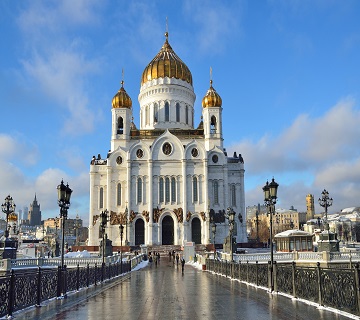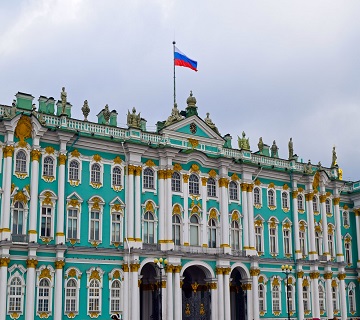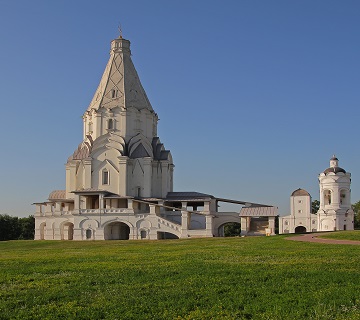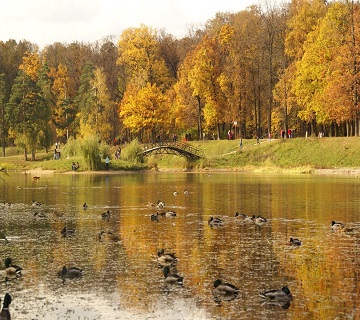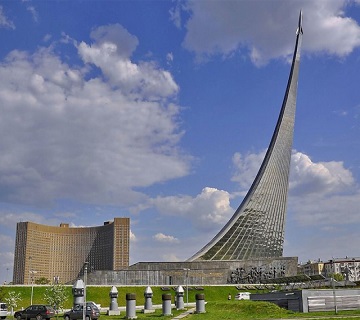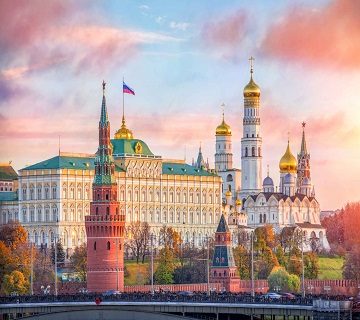Venue & Hospitality
City Highlights
About City
Moscow is the capital of Russia and is located in the far west of the country on the river Moskva. It has a population of 11,273,400. It is the most populous city in Europe, Moscow continues to grow. This is largely due to its 20% per annum economic growth, which attracts workers (often illegally) from other parts of Russia where the economy has stagnated or is even in decline. An internal passport system making it illegal for non-residents to remain in the city for longer than 90 days is proving ineffective at combatting this trend. As well as being a thriving economic centre (boasting more billionaires than any other city in the world), Moscow is also a centre of the arts. The city enjoyed a golden age of literature in the 19th century when Puskhin, Chekhov, Gogol, Turgenev, Dostoevsky and Tolstoy all worked here.
Transportation System in Moscow:
Moscow has a comprehensive system of public transit including the famous Moscow Metro, an extensive network of surface transit (buses, trolleybuses and trams) and private taxi. A bike-share system is available from mid-spring to mid-autumn. Sheremetyevo International Airport is the most globally connected, handling 60% of all international flights. There are five primary commercial airports serving Moscow are Sheremetyevo International Airport (SVO), Domodedovo International Airport (DME), Vnukovo International Airport (VKO), Zhukovsky International Airport (ZIA), Ostafyevo International Airport (OSF).
Economic Condition:
Moscow has one of the largest municipal economies in Europe and it accounts more than one-fifth of Russia's gross domestic product (GDP). Overall, economic stability has improved in recent years; nonetheless, crime and corruption still hinder business development. In 2018, Moscow was a host city to 12 games of the FIFA World Cup. The tournament served as an additional driver for the city economy, its sports and tourist infrastructure, and for land improvement in the city.
Educational System:
Moscow is one of the largest science centres in Russia. The headquarters of the Russian Academy of Sciences are located in Moscow as well as research and applied science institutions. The Kurchatov Institute, Russia's leading research and development institution in the fields of nuclear energy, where the first nuclear reactor in Europe was built, the Landau Institute for Theoretical Physics, Institute for Theoretical and Experimental Physics, Kapitza Institute for Physical Problems and Steklov Institute of Mathematics are all situated in Moscow.
Geographical Situation:
Moscow has a humid continental climate with long, cold winters usually lasting from mid-November through the end of March, and warm summers. Moscow serves as the reference point for the time zone used in most of European Russia, Belarus and the Republic of Crimea.
Tourist Attraction of Moscow:
- Peterhof Palace
- Pushkin Museum
- Kolomenskoye
- Novospassky Monastery
- Kremlin Armoury
- Sparrow Hills
- Cathedral of The Archangel
- Losiny Ostrov National Park
- Ostankino Tower
- Grand Kremlin Palace
- Saint Basil’s Cathedral
List of Research Centres in Moscow
- Moscow State University
- Lamonosov Moscow State University
- Institutes of the Russian Academy of Sciences
- National Research Nuclear University
- National University of Science
- Russian Academy of Sciences
- Institute of Higher Nervous Activity
- Medical Research Institutes
- Neuroscience Research Centres
We look forward to see you in Moscow!
Venue

